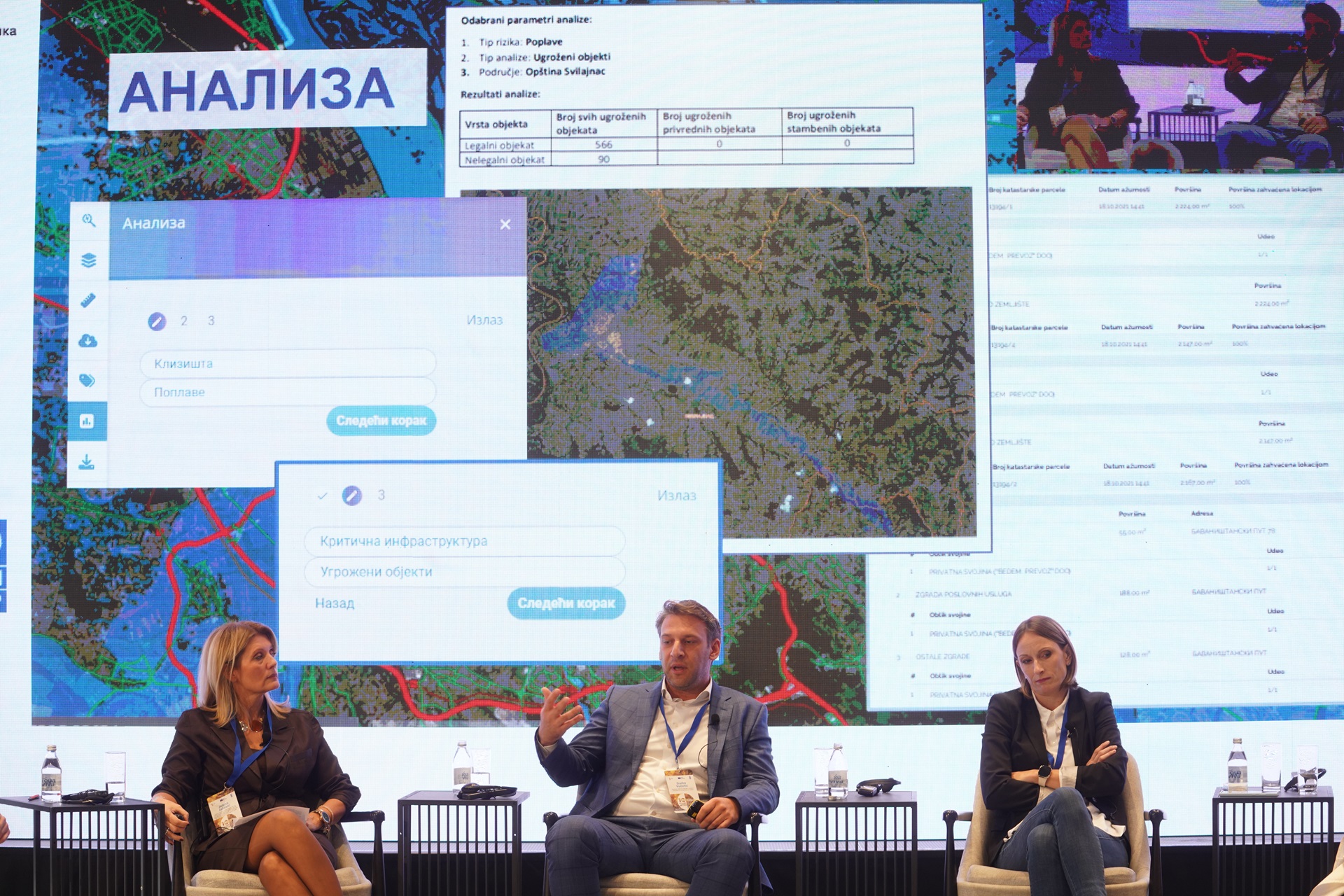Enhancing digital platforms towards a safer Serbia – the Ministry of Interior (MoI) and the Republic Geodetic Authority (RGA) presented new functionalities of the Disaster Risk Register
On the regional conference "10 Years After the 2014 Floods", United Nations Development Programme (UNDP), with the support of the European Union (EU) has introduced new functionalities of the Disaster Risk Register – a key innovative digital tool in risk management. The Register was jointly developed with the Sector for Emergency Management of the Ministry of Internal Affairs (MoI/SEM) and the Republic Geodetic Authority (RGA).

In addition to the existing risks – floods, landslides, forest fires, and earthquakes – the Register will, after the upgrade, also include risks of pandemics and epidemics, as well as all impacts of natural and other disasters on public health and the whole public health system.
Deputy Head of the Directorate for Civil Protection and Risk Management from Ministry of the Interior, SEM, Ms. Jelena Jasovic, and Assistant Director and Head of the Sector for Development and Innovation at RGA Mr. Darko Vučetić, jointly presented the new capabilities and functionalities of the Register that will be available after the upgrade. Through simulations of specific scenarios such as forest fires, landslides, and floods, the efficiency and operability of the platform were demonstrated. Since its establishment in 2022, the Register has positioned itself as a crucial mechanism for managing disaster risks in the Republic of Serbia, aimed at identifying and reducing risks from natural and other hazards.


This digital tool represents one of the most advanced solutions in Europe in the field of disaster risk management and a significant step forward in enhancing the protection and security system in Serbia. It provides important tools for decision-making and planning at both national and local levels. The platform enables timely identification of potential risks, rapid response in emergency situations, and efficient decision-making, thereby contributing to greater safety for citizens and their property.
In addition to increasing the resilience of local communities, the Register allows for better coordination and collaboration among various elements of the healthcare system, disaster risk reduction and emergency response system, and the application of digital technologies in managing geospatial data at local and national levels.

Please take a look at the new functionalities of the Disaster Risk Registry at the following link:
Day2 , Regional Conference"10 Years After the Floods" – Panel 1, Risk Register section (0:21:15-1:06:45)
The Disaster Risk Register was initially developed and established in 2022 as part of the "EU for Serbia Resilient to Disasters" project operating as a subsystem of the national geospatial data infrastructure, serving as an innovative tool for risk management, emergency response, and planning for investments, safety, and sustainable development, based on risk information. The Register is utilized by all public administration bodies involved in the National Disaster Risk Reduction System and is also accessible to the general public.
The upgrade of the Disaster Risk Register to include public health risks is being carried out as part of the "EU for Healthcare System in Serbia" project, jointly implemented by UNDP and WHO, with financial support from the European Union. The new, upgraded version of the Disaster Risk Register will be available to relevant institutions and the wider public by mid-2025.


